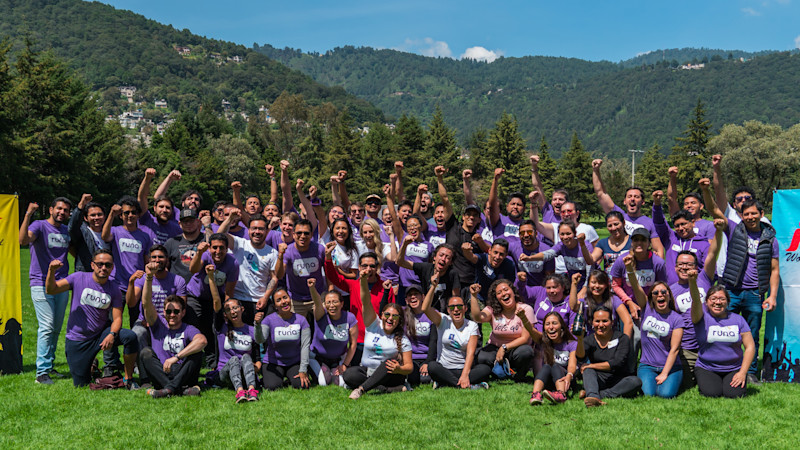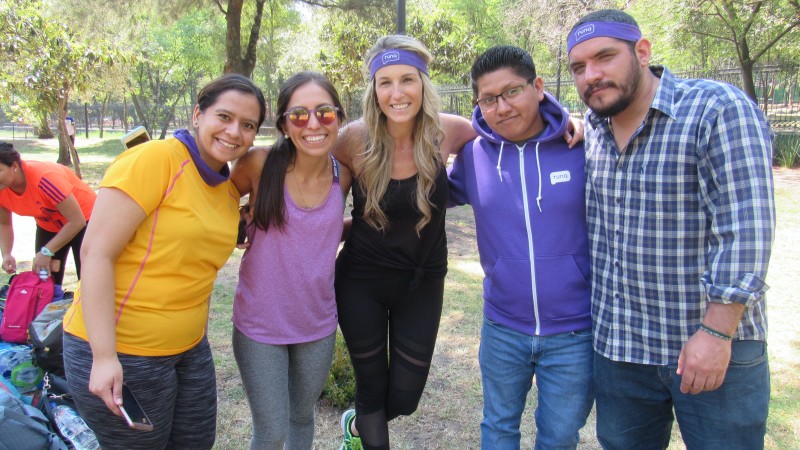Why Transparency Matters to the CEO of LatAm’s Largest Payroll Software Startup
Courtney McColgan’s entire career has been defined by her ability to predict the opportunities and demands of unfamiliar markets, and this year was no different.

Courtney McColgan’s entire career has been defined by her ability to predict the opportunities and demands of unfamiliar markets. It’s what led a Chinese major to not just learn Spanish, but start a business in Mexico City, and how a Stanford-educated Californian grew to be the founder and CEO of the largest payroll software company in Latin America, Runa HR.
This year was no different. In early March, while Courtney walked around San Francisco, she realized that the world was about to careen into the unknown. COVID-19 had not gotten bad in Mexico yet and she had gotten on a plane for a week of in-person meetings with her investors in California. When all those meetings were pushed to a Zoom, she got concerned. When she walked around the city’s financial district and saw it empty, it felt like a slap to the face.
Courtney immediately went back to her hotel room and changed her return flight to Peru, her husband Daniel’s home country. On the flight, she researched the impact of the 2008 financial crisis on public payroll companies at the same time she made summer plans for her three children, all of whom are under the age of three. After landing, Courtney and her husband brought their children to their in-laws. Runa went all-remote, Peru’s border closed the next day, and she and her family have been there since.
Looking back on it, that was the easy part. The hard part was realizing that while companies in 2008 didn’t have a huge decrease in revenue, they did see four to six quarters of slowed growth. For a growing company like , which raised a at a $75M valuation and had planned to raise a large Series B in 2020, slowed growth can be deadly. So Courtney sat down and went through her company’s finances, line by line, and made cuts on growth projects to focus on the core payroll software business.
Rental contracts were re-negotiated. Senior salaries were cut by 10% or more. And in the hardest decision of Courtney’s three years running Runa, 25% of the staff was laid off with full severance.
“You immediately turn into survival mode,” she said. “None of us invested three years of our lives in building Runa just for it to die because of a pandemic. We actually had T-shirts made and sent to our employees that said, ‘No bug is going to kill Runa.’ That did make the transitions for our team easier because I think we all looked at it as though there's no other option. If we don't do this, if we don’t make these hard decisions, everything we built is going to die.”
That doesn’t mean that the conversations were easy, especially because they had to happen over Zoom. This is a company that Courtney started from the ground-up in 2017, a startup tasked with turning the antiquated payroll systems in LatAm into modern, efficient tools that work for companies of every size and in every Spanish-speaking country. A journey like that leads to a cohesive team, one where layoffs are not simple.
And yet, Courtney says there wasn’t a lot of blowback surrounding the decision. They made every call in one day to make sure the whole team had the same information, and for the most part, people understood.
“It was important for me to say, ‘Look, this is the situation in the world. This is what it’s forcing us to do. We're making this cut once, right now, and then we're not going to go through and have progressive cuts month over month for the rest of the year,’ ” Courtney said. “No one likes to let anyone go via video call, but I just tried to be honest and sincere as I would want someone to be with me. I think people trusted that conversation because it was open and transparent, yes, but also because our whole company has been that way since the beginning.”
Even when the company was five people, Courtney says, transparency and open communication was paramount. Employees complete NPS surveys once a month that ask about everything from manager performance to company direction.
By starting with that baseline of trust, it made a remarkably difficult, but necessary, decision easier for everyone. If Courtney had run her company with hard direction from the top down, without employee input, 2020 could have been catastrophic.
Instead, with the restructuring and cuts, Runa was able to extend its runway to January 2022, giving Courtney and her team enough time to reset reasonable milestones and raise their B round in 2021. There will be more challenges, and the world is not nearly out of the woods yet.
But this is also a woman who studied Chinese and Economics at U.C Berkeley, and then while getting her MBA at Stanford, met and married a man from Peru. On a trip down to meet his family, she realized that the LatAm market was prime for disruption and taught herself Spanish in part by requesting that her new husband’s family never speak to her in English. Three months after that, she became the CMO at Cabify, an Uber competitor that grew from a $20M valuation to a $1.5B valuation in her three years there.
The challenges she faced in that role, namely, having to deal with 10+ complaints a pay period over missed or delayed paychecks due to a completely outdated HR system, led her to starting Runa. The company now handles payroll for more than 100,000 employees in LatAm, giving thousands of employers more time to focus on growing their business.
So it’s not that Courtney knows what is coming. It’s just that she, and Runa, is going to be ready for it.

--
The Org is a professional community where transparent companies can show off their team to the world. Join your company here to add yourself to the org chart!
In this article


The ¬Ð¿Ú¬“¬◊ helps
you hire great
candidates
Free to use – try today



